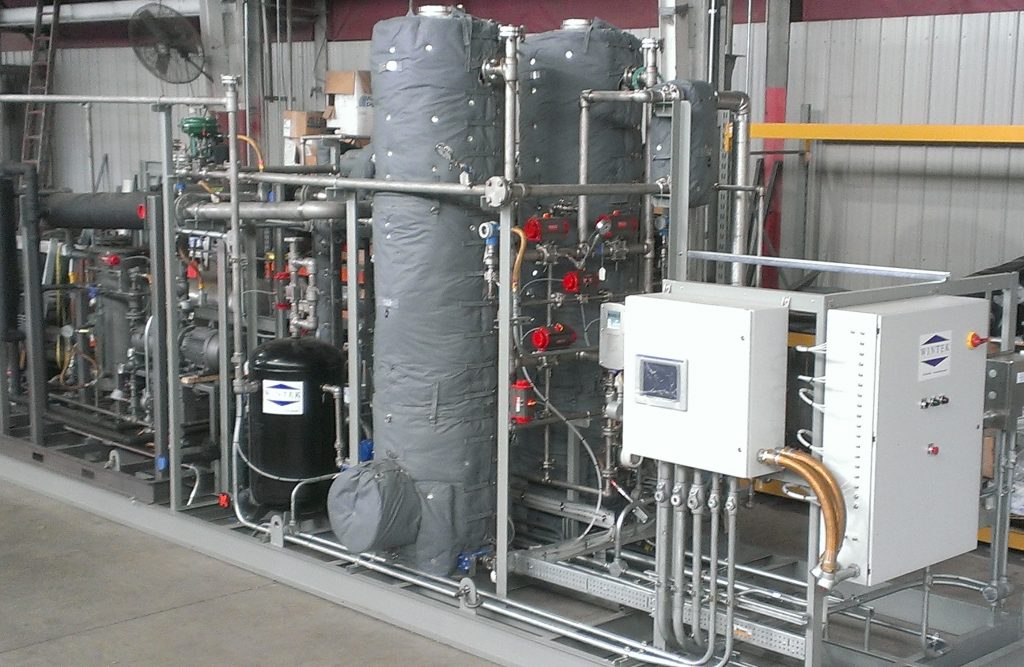The Purpose of MSDUs for Ethanol Dehydration
The separation of water and ethanol is particularly challenging due to the formation of an azeotrope at ~95 volume % ethanol/water. Achieving further component separation is impossible through traditional means at this concentration of ethanol and water at atmospheric pressure. This is because the composition of components in the liquid phase and gas phase are equivalent. There are a few ways to get around this limitation. However, Wintek focuses on the physical separation technique that utilizes molecular sieves. Molecular sieves are synthetic beads with small pores. The pores are large enough to allow water molecules to pass through but small enough to restrict the flow of ethanol into the beads.
The water saturates the beads, while the dry ethanol passes through the system. High temperatures and a pressure swing vaporize the water within the beads. The beads are re-used for further separation. This technique is a physical separation, meaning the azeotrope does not limit the ability to remove the water.
Wintek designs and operates Ethanol Dehydration Molecular Sieve Dehydration Units (MSDUs) custom-designed to remove water content, allowing ethanol recycling.
Wintek’s Ethanol MSDUs Are Highly-Efficient Designs Providing:
- Ability to process from ½ gpm to over 25 gpm of wet alcohols and solvents
- 90-95% solvent recovery rates
- Energy consumption less than competing technologies
- Minimal operator intervention
- Ability to handle a wide variation in feed concentrations (0-10% water by volume, up to 15% possible).
- High purity: Standard Dryness: >99.5% (<5,000 ppm water)

